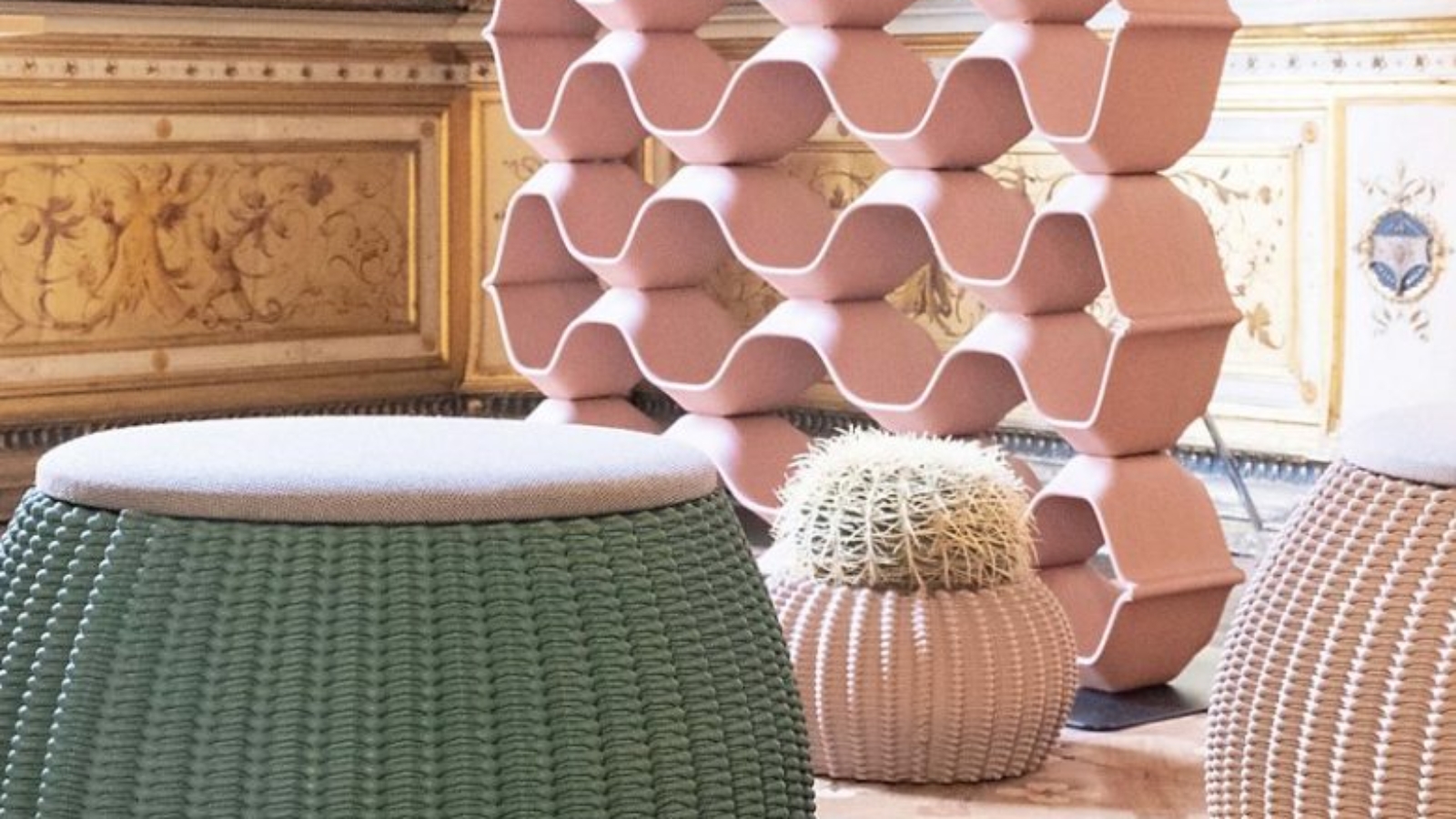According to Tetra Pak, almost 200 billion beverage cartons were produced in 2021, and there are an estimated 5 billion buildings in the world. Therefore, it only makes sense to explore turning these cartons into high-value architectural materials, and decreasing humanity’s reliance on virgin materials used for building and furnishing our daily living and working spaces. This is exactly what Dutch interior design brand, Aectual, is doing – using PolyAl (polymers and aluminum from recycled cartons).
Aectual is taking recycled materials one step further than the recycling facility and is systematically creating high-quality products that retain, or exceed, their original value – proving the potential of large-scale upcycling, and demonstrating the direction in which fully circular design can take us.
Aectual is based in Amsterdam and is the world’s first platform for 100% circular, 3D printed interior and architectural products. Working together with Tetra Pak’s Workplace Experience and Real Estate team, Aectual has developed a series of unique interior objects and elements made entirely of PolyAl.

The Aectual x Tetra Pak concept line first launched at the Milan Design Fair in June 2022, and is being rolled out incrementally across Tetra Pak’s global facilities.
“Together with Aectual, we developed a playbook with a selection of product designs our workplace teams can choose from to furnish their own environments while implementing workplace projects,” said Sudhir Saseedharan, Director of Workplace Experience and Real Estate at Tetra Pak. “It’s part of our workplace experience strategy to ensure we live up to our promise to protect food, people, and the planet in our own work environments every day.”
Products in the playbook include stylish and functional stools, planters, wall panels, room dividers, window screens, and more – all 3D printed with PolyAl. All the products are 100% circular, because the source material comes from recycled cartons, and once the designs wear out, the products can be shredded and reprinted into new products.
The project started when Sudhir’s team asked the question: “How can we use post-consumer packaging waste in our own furniture and interiors?” Around the same time, Aectual happened to be testing PolyAl with their 3D print designs, working with material they received from a local recycler.
Manufacturing on Demand

“PolyAl is a most impressive material,” said Hedwig Heinsman, Creative Director and Co-founder of Aectual. “It’s a bit clay-like and looks like concrete, but it’s really versatile. And the tiny chips of aluminum give it depth and allow the color to mix well into the material. It has a lovely tactile finish. Based on these behaviors, we are confident we can use PolyAl to produce all the products in our portfolio.”
Aectual works with a range of plastics, from virgin plant-based plastic to recycled polypropylene, but the company focuses on ecosystems where they can tap into valuable recycling streams.
“We work with waste plastics because we see a lot of advantages in the material, but we need large amounts from an identical origin,” said Hedwig Heinsman. “So, we look for professional industrial partners to help us close the loop: when there is a recycled material in place, we can adapt it to 3D printing.”

95% of Aectual’s clientele are corporate clients – the likes of Nike, Disney, Burberry, and more. “They come for the aesthetics – they love the look of our products – and they stay for the sustainability,” said Hedwig Heinsman. “Working with corporate clients makes sense for us as they often have a wide network of facilities to furnish, and they are refreshing their interiors every five years or so. They create a natural place for us to scale our designs.”
“As our sustainability team always says, for any sustainable innovation to make a tangible impact, it needs to be available at scale,” said Sudhir Saseedharan. “The beauty of Aectual’s platform is that the designs are mass customizable. So, wherever there is reliable recycling infrastructure and willing recycling partners, the PolyAl can be implemented in Aectual’s designs. We see this as the basis for creating real systemic change with PolyAl and that’s what we want to help facilitate.”
“We have already introduced it [PolyAl] to several big global architecture firms, and we plan to do everything we can to spread the word about the potential of PolyAl,” said Hedwig Heinsman.
You might also like:
Cycling hour speed world record set on a 3D printed Pinarello bike: The BOLIDE F HR 3D has a 3D printed frame, designed specifically for Filippo Ganna and for his UCI Hour Record timed by Tissot attempt. It was 3D printed on an EOS M400 system. “We are always pushing the level of product design to new extremes to allow our champions to achieve their goals” commented Fausto Pinarello.
* This article is reprinted from 3D Printing Media Network. If you are involved in infringement, please contact us to delete it.
Author: Edward Wakefield


Leave A Comment